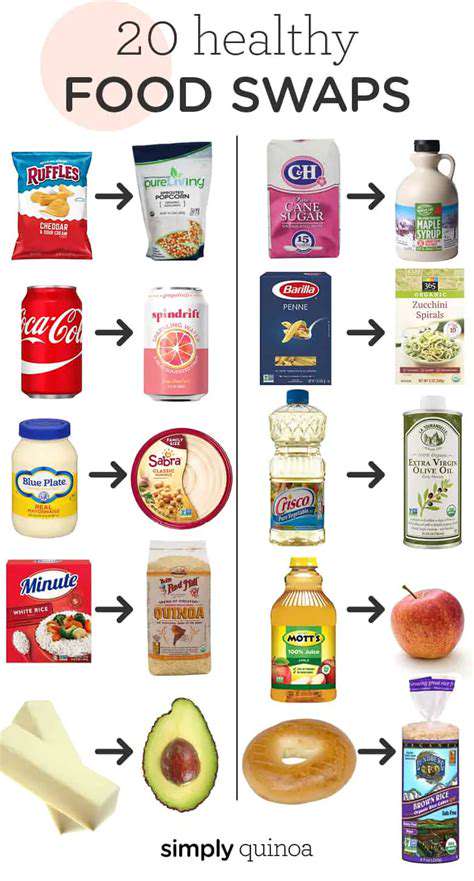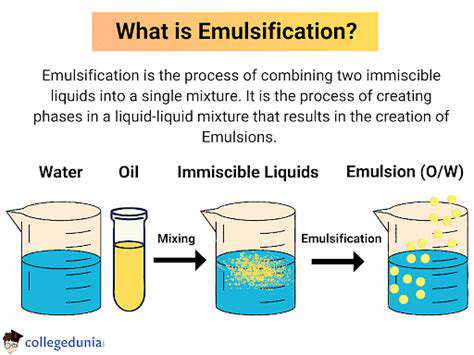Types of Salt and When to Use Them in Cooking
Sea Salt: The Natural Choice
Sea salt, harvested directly from evaporated seawater, boasts a complex flavor profile that sets it apart from other types of salt. Its unique minerality and subtle nuances make it a popular choice for culinary enthusiasts seeking a natural, unrefined taste. The crystals themselves often vary in size and shape, contributing to the textural interest in dishes where sea salt is used. This natural process ensures a rich array of minerals, adding a touch of the ocean to your culinary creations.
The Versatility of Sea Salt in Cooking
Sea salt's versatility extends beyond simple seasoning. Its robust flavor makes it a wonderful addition to a variety of dishes, from roasted vegetables to grilled meats. The delicate balance of flavors makes it an excellent choice for salads, enhancing the freshness of the ingredients without overpowering them. Its textural characteristics can also be beneficial in particular dishes, like enhancing the crunch of potato chips, or complementing the rich flavors of charcuterie boards.
Sea Salt and its Impact on Culinary Experiences
Sea salt plays a crucial role in enhancing flavor complexity and depth in various culinary experiences. Its ability to balance the richness of sauces, highlight the sweetness of fruits, and deepen the savory notes of meats is a testament to its versatility. The subtle nuances of sea salt, coupled with its natural origin, elevate dishes beyond the ordinary. The subtle minerality can also be a critical component in creating a richer, more complex flavor profile.
Different Types of Sea Salt and Their Characteristics
Various methods of sea salt harvesting yield different qualities. Coarse sea salt, known for its larger crystals, often lends a more substantial flavor and textural element to dishes. Fine sea salt, on the other hand, offers a more subtle, delicate flavor profile, making it ideal for sprinkling on finished dishes. Understanding the differences in types of sea salt allows chefs to choose the ideal variety to complement the specific flavors of their creations. The crystal size and shape can also provide a visual component to dishes that are otherwise simple.
Sea Salt vs. Table Salt: A Comparative Analysis
While both sea salt and table salt contribute to the savory notes of dishes, they differ significantly in their composition and preparation. Sea salt retains a broader range of minerals, providing a more nuanced flavor compared to table salt's often-processed counterpart. Table salt, often refined, has a more uniform texture and taste, making it a more predictable choice in certain applications. Choosing the right salt depends on the desired outcome in the dish, whether it is a subtle seasoning or a robust flavor enhancer.
Sea Salt and its Role in Healthy Eating
Beyond its culinary applications, sea salt plays a role in holistic health and well-being. The natural minerals present in sea salt contribute to the essential electrolytes in the body, which are necessary for maintaining overall health. However, it's important to remember that moderation is key. While sea salt is a natural product, excessive consumption can still impact one's health. Understanding the balance between flavor and health is vital for incorporating sea salt into a balanced diet.


Read more about Types of Salt and When to Use Them in Cooking
Hot Recommendations
- Traditional Foods for Day of the Dead
- Food Etiquette in Italy: Pasta Rules!
- Best Family Friendly Restaurants with Play Areas in [City]
- Review: The Best [Specific Dessert] Place in [City]
- Top Ice Cream Parlors in [City]
- Traditional Foods for Halloween
- The History of the Potato in Ireland
- Best Vegan Pizza Joints in [City] [2025]
- Best Bakeries for Sourdough Bread in [City]
- Food Culture in Argentina: Asado and Wine



![Review: [Specific Bakery Name] What to Order](/static/images/28/2025-05/SavorySensations3ABeyondtheSweets.jpg)

![Best Burgers in [City]](/static/images/28/2025-05/HiddenGems26LocalFavorites3AUncoveringtheBestKeptSecrets.jpg)





